Informationen zur Zeitschrift
Startseite » Programm » FZG 2018 | Der Ort des Politischen in den Critical Feminist Materialisms
FZG 2018 | Der Ort des Politischen in den Critical Feminist Materialisms
Erscheinungsdatum : 19.12.2018
0,00 € - 36,00 €
Inhalt
FZG 2018 | Der Ort des Politischen in den Critical Feminist Materialisms
(Gast)-Hrsg.: Dr. Joris Anja Gregor, Dr. Beate Rosenzweig, Dr. habil. Sigrid Schmitz, Prof. Dr. Bettina Wuttig
Joris A. Gregor / Sigrid Schmitz / Bettina Wuttig / Beate Rosenzweig: Der Ort des Politischen in den Critical Feminist Materialisms
Aufsatz
Christian Helge Peters: (Neu-)Politisierungen in feministischen New Materialisms: Elizabeth Grosz, Jane Bennett und Rosi Braidotti
Holly Patch / Tomke König: Trans* Vocality: lived experience, singing bodies, and joyful politics
Beatriz Revelles-Benavente / Ana M. González Ramos: Communication and Feminist New Materialism: Methodologies to understand the continuum between matter and discourse
Karisa Senavitis: Reparative Design: A Study of Collective Practices for Generating and Redistributing Care Online
Interview
Joris A. Gregor: Die ethische Haltung bedeutet für mich hören und antworten
Rezensionen
Sofia Varino: Incorporeal Conditions: Elizabeth Grosz’s Ontoethics
Joris A. Gregor: Forsch(ung)en im Grenzgebiet
Aufsatz aus dem Offenen Call
Bianca Prietl: Ingenieurinnen, die es geschafft haben!? Symbolische Marginalisierungen prekärer Subjekte
Inhaltsverzeichnis herunterladen
Open Access
Diese Ausgabe ist kostenlos im Open Access (PDF) oder kostenpflichtig als Print-Ausgabe erhältlich.
Gesamt-PDF | Einzelbeiträge auf Budrich Journals
This issue is available in Open Access (PDF) or can be purchased as print edition.
Full-Text PDF | Single contributions at Budrich Journals
Einzelbeitrag-Download (Open Access/Gebühr): fzg.budrich-journals.de
Sie können sich hier für den FZG-Alert anmelden.
Zusätzliche Information
| Verlag | |
|---|---|
| Format | 15,6 x 24 cm |
| Umfang | 147 |
| Erscheinungsdatum | 19.12.2018 |
| Sprache | Deutsch |
Autor*innen
Schlagwörterboundary negotiating tools, care, co-creation, communication, critical feminist materialisms, digital patient labor, erneuerbare Energien, Ethik, Facebook, Feminismus, feminist new materialism, feminist phenomenology, Gilles Deleuze, informed refusal, Ingenieurinnen, materiality, Mikropolitik, neuer Materialismus, novel, Politische Theorie, precarious collectives, prekäre Subjekte, qualitative Interviewstudie, singing, symbolische Marginalisierung, Transgender, voice
Abstracts
(Neu-)Politisierungen in feministischen New Materialisms: Elizabeth Grosz, Jane Bennett und Rosi Braidotti (Christian Helge Peters)
In Auseinandersetzung mit Materialitäten entwickeln feministische New Materialisms ein neues Verständnis politischer Praxen. Materialitäten, insbesondere Körper, werden als aktiv verstanden, mit einer eigenen agency. Im Anschluss an Gilles Deleuze werden hier drei zentrale Theoretikerinnen der feministischen New Materialisms mit ihren je unterschiedlichen (Neu-)Politisierungen von Materialitäten diskutiert: Elizabeth Grosz schließt an die Gedanken von Deleuze zur Kraft des Lebens an und politisiert sie. Die Intuition ist hier eine Erfahrung und Partizipation in den Lebensprozessen der Materialitäten. Jane Bennett greift ebenso auf Deleuzes Konzeption von vitalen und dynamischen Materialitäten zurück und entwickelt ausgehend davon eine Politik der Sorge und Verantwortung für Materialitäten. Als Letztes wird Rosi Braidottis Theorie untersucht. Ausgehend von Deleuzes Ideen zum Frau-Werden entwickelt sie eine widerständige Praxis des Feminismus und der sexuellen Differenz gegen die Ordnung der ‚Männlichkeit‘. Am Ende werden die theoretischen und politischen Konsequenzen dieser Mikropolitiken in den feministischen New Materialisms diskutiert. Schlagwörter: Gilles Deleuze, Feminismus, Neuer Materialismus, Mikropolitik, Politische Theorie
» Einzelbeitrag kostenlos herunterladen (Budrich Journals)
Trans* Vocality: lived experience, singing bodies, and joyful politics (Holly Patch, Tomke König)
In this article, we argue that with critical feminist materialisms, it is possible to develop what we have already learned so far from poststructural gender deconstructivism while also asking what can yet be learned from bodies, experience, and materiality. We continue to reject essentialist understandings of gender but maintain that there is a need to emphasize the material dimension of lived experiences. ‘Voice’ is ‘material relationality’ that has not yet received enough attention despite its centrality to political pursuits. In tracing the voice and its relation to materialisms, phenomenology, and poststructuralism, we frame ‘vocality’ as an embodied and lived phenomenon, developing a theoretical lens for the purpose of investigating the enactment of agency of trans* vocality. This phenomenological, materialist approach turns to the lived experiences of transgender and non-binary singers to both ground theory on gender and understand what is political about trans*vocality in singing. Using material from an ongoing research project, we seek to show how the constitution of singing subjects is political and, additionally, how through singing – a kind of ‘sensuous knowledge’ – trans* vocal expression can be a joyful resource for politicism and social change. Keywords: voice, transgender, singing, feminist phenomenology, materiality
» Einzelbeitrag kostenlos herunterladen (Budrich Journals)
Communication and Feminist New Materialism: Methodologies to understand the continuum between matter and discourse (Beatriz Revelles-Benavente, Ana M. González Ramos)
The relationship between literature and social networking sites (SNS) is a material context in which authors and readers merge into each other to create a literary communicative process that transforms contemporary politics. The aim of this paper is to analyse the communicative process by investigating the continuum between matter and discourse from a new materialist approach. From social sites, we can understand how elements, such as readers, authors, context, novels, culture and digital platforms, “intra-act” (Barad 2007) to create an affecting/ed communicative process. We propose feminist new materialism as a theoretical terrain that helps to reconfigure politics and communication in order to build a methodological framework for contemporary feminist politics and theory related to Literature. Using a digital genealogy and the theory of new materialism, we identify communication in literature as a trapping force in which different elements intra-act with each other and become indivisible. Affecting/ed communication is a dynamic conceptualization, a literary activity in which active agents participate in creative spaces for future social changes. Keywords: Novel, co-creation, facebook, Feminist New Materialism, communication
» Einzelbeitrag kostenlos herunterladen (Budrich Journals)
Reparative Design: A Study of Collective Practices for Generating and Redistributing Care Online (Karisa Senavitis)
Online content produced by sick bodies, outside of clinical trials, is increasingly studied as real world evidence. US policy and biomedical companies are designing ways to make patient input legible and useful to their evidence-based medical system. My design study suggests an ethic of repair that might learn from the political agency of people with chronic autoimmune conditions. It brings feminist materialist studies into dialogue with two collective care groups who devise tools for reciprocal, collaborative intra-action. Their tools offer different ways to study illness online and negotiate boundaries (of bodies/expertise/space). Together they articulate the values and risks in generating embodied knowledge and redistributing data through digital communities. Keywords: Precarious collectives, care, informed refusal, digital patient labor, boundary negotiating tools
» Einzelbeitrag kostenlos herunterladen (Budrich Journals)
Ingenieurinnen, die es geschafft haben!? Symbolische Marginalisierungen prekärer Subjekte (Bianca Prietl)
Dieser Beitrag fragt nach der Bedeutung einer männlich verfassten kulturellen Wissensordnung im Feld der Technik für die Subjektansprüche und (An-)Erkennung von Ingenieurinnen. Auf Basis qualitativer Interviews mit Ingenieurinnen, die als Führungskräfte im deutschsprachigen Bereich erneuerbarer Energien tätig sind, wird gezeigt, wie diese ihr Berufsfeld (vordergründig) als ein geschlechtergerechtes beschreiben, zugleich aber Marginalisierungserfahrungen qua Geschlecht thematisieren. Diese von den Interviewten unaufgelöst bleibende Disparität in der diskursiven Praxis wird als Effekt von symbolischer Gewalt als auch von spezifischen Aussageregelungen im technischen Feld interpretiert. Ziel ist es, besser zu verstehen, wie Ingenieurinnen als prekäre Subjekte hervorgebracht und die Teilhabechancen von Männern und Frauen im Ingenieurberuf auf der symbolischen Ebene kultureller Wissensordnungen reguliert werden. Schlagwörter: Ingenieurinnen, symbolische Marginalisierung, prekäre Subjekte, erneuerbare Energien, qualitative Interviewstudie
» Einzelbeitrag kostenlos herunterladen (Budrich Journals)
Inhalt
Inhalt
FZG 2018 | Der Ort des Politischen in den Critical Feminist Materialisms
(Gast)-Hrsg.: Dr. Joris Anja Gregor, Dr. Beate Rosenzweig, Dr. habil. Sigrid Schmitz, Prof. Dr. Bettina Wuttig
Joris A. Gregor / Sigrid Schmitz / Bettina Wuttig / Beate Rosenzweig: Der Ort des Politischen in den Critical Feminist Materialisms
Aufsatz
Christian Helge Peters: (Neu-)Politisierungen in feministischen New Materialisms: Elizabeth Grosz, Jane Bennett und Rosi Braidotti
Holly Patch / Tomke König: Trans* Vocality: lived experience, singing bodies, and joyful politics
Beatriz Revelles-Benavente / Ana M. González Ramos: Communication and Feminist New Materialism: Methodologies to understand the continuum between matter and discourse
Karisa Senavitis: Reparative Design: A Study of Collective Practices for Generating and Redistributing Care Online
Interview
Joris A. Gregor: Die ethische Haltung bedeutet für mich hören und antworten
Rezensionen
Sofia Varino: Incorporeal Conditions: Elizabeth Grosz’s Ontoethics
Joris A. Gregor: Forsch(ung)en im Grenzgebiet
Aufsatz aus dem Offenen Call
Bianca Prietl: Ingenieurinnen, die es geschafft haben!? Symbolische Marginalisierungen prekärer Subjekte
Inhaltsverzeichnis herunterladen
Open Access
Diese Ausgabe ist kostenlos im Open Access (PDF) oder kostenpflichtig als Print-Ausgabe erhältlich.
Gesamt-PDF | Einzelbeiträge auf Budrich Journals
This issue is available in Open Access (PDF) or can be purchased as print edition.
Full-Text PDF | Single contributions at Budrich Journals
Einzelbeitrag-Download (Open Access/Gebühr): fzg.budrich-journals.de
Sie können sich hier für den FZG-Alert anmelden.
Bibliografie
Zusätzliche Information
| Verlag | |
|---|---|
| Format | 15,6 x 24 cm |
| Umfang | 147 |
| Erscheinungsdatum | 19.12.2018 |
| Sprache | Deutsch |
Produktsicherheit
Bewertungen (0)
Bewertungen
Es gibt noch keine Bewertungen.
Autor*innen
Autor*innen
Schlagwörter
Schlagwörterboundary negotiating tools, care, co-creation, communication, critical feminist materialisms, digital patient labor, erneuerbare Energien, Ethik, Facebook, Feminismus, feminist new materialism, feminist phenomenology, Gilles Deleuze, informed refusal, Ingenieurinnen, materiality, Mikropolitik, neuer Materialismus, novel, Politische Theorie, precarious collectives, prekäre Subjekte, qualitative Interviewstudie, singing, symbolische Marginalisierung, Transgender, voice
Abstracts
Abstracts
(Neu-)Politisierungen in feministischen New Materialisms: Elizabeth Grosz, Jane Bennett und Rosi Braidotti (Christian Helge Peters)
In Auseinandersetzung mit Materialitäten entwickeln feministische New Materialisms ein neues Verständnis politischer Praxen. Materialitäten, insbesondere Körper, werden als aktiv verstanden, mit einer eigenen agency. Im Anschluss an Gilles Deleuze werden hier drei zentrale Theoretikerinnen der feministischen New Materialisms mit ihren je unterschiedlichen (Neu-)Politisierungen von Materialitäten diskutiert: Elizabeth Grosz schließt an die Gedanken von Deleuze zur Kraft des Lebens an und politisiert sie. Die Intuition ist hier eine Erfahrung und Partizipation in den Lebensprozessen der Materialitäten. Jane Bennett greift ebenso auf Deleuzes Konzeption von vitalen und dynamischen Materialitäten zurück und entwickelt ausgehend davon eine Politik der Sorge und Verantwortung für Materialitäten. Als Letztes wird Rosi Braidottis Theorie untersucht. Ausgehend von Deleuzes Ideen zum Frau-Werden entwickelt sie eine widerständige Praxis des Feminismus und der sexuellen Differenz gegen die Ordnung der ‚Männlichkeit‘. Am Ende werden die theoretischen und politischen Konsequenzen dieser Mikropolitiken in den feministischen New Materialisms diskutiert. Schlagwörter: Gilles Deleuze, Feminismus, Neuer Materialismus, Mikropolitik, Politische Theorie
» Einzelbeitrag kostenlos herunterladen (Budrich Journals)
Trans* Vocality: lived experience, singing bodies, and joyful politics (Holly Patch, Tomke König)
In this article, we argue that with critical feminist materialisms, it is possible to develop what we have already learned so far from poststructural gender deconstructivism while also asking what can yet be learned from bodies, experience, and materiality. We continue to reject essentialist understandings of gender but maintain that there is a need to emphasize the material dimension of lived experiences. ‘Voice’ is ‘material relationality’ that has not yet received enough attention despite its centrality to political pursuits. In tracing the voice and its relation to materialisms, phenomenology, and poststructuralism, we frame ‘vocality’ as an embodied and lived phenomenon, developing a theoretical lens for the purpose of investigating the enactment of agency of trans* vocality. This phenomenological, materialist approach turns to the lived experiences of transgender and non-binary singers to both ground theory on gender and understand what is political about trans*vocality in singing. Using material from an ongoing research project, we seek to show how the constitution of singing subjects is political and, additionally, how through singing – a kind of ‘sensuous knowledge’ – trans* vocal expression can be a joyful resource for politicism and social change. Keywords: voice, transgender, singing, feminist phenomenology, materiality
» Einzelbeitrag kostenlos herunterladen (Budrich Journals)
Communication and Feminist New Materialism: Methodologies to understand the continuum between matter and discourse (Beatriz Revelles-Benavente, Ana M. González Ramos)
The relationship between literature and social networking sites (SNS) is a material context in which authors and readers merge into each other to create a literary communicative process that transforms contemporary politics. The aim of this paper is to analyse the communicative process by investigating the continuum between matter and discourse from a new materialist approach. From social sites, we can understand how elements, such as readers, authors, context, novels, culture and digital platforms, “intra-act” (Barad 2007) to create an affecting/ed communicative process. We propose feminist new materialism as a theoretical terrain that helps to reconfigure politics and communication in order to build a methodological framework for contemporary feminist politics and theory related to Literature. Using a digital genealogy and the theory of new materialism, we identify communication in literature as a trapping force in which different elements intra-act with each other and become indivisible. Affecting/ed communication is a dynamic conceptualization, a literary activity in which active agents participate in creative spaces for future social changes. Keywords: Novel, co-creation, facebook, Feminist New Materialism, communication
» Einzelbeitrag kostenlos herunterladen (Budrich Journals)
Reparative Design: A Study of Collective Practices for Generating and Redistributing Care Online (Karisa Senavitis)
Online content produced by sick bodies, outside of clinical trials, is increasingly studied as real world evidence. US policy and biomedical companies are designing ways to make patient input legible and useful to their evidence-based medical system. My design study suggests an ethic of repair that might learn from the political agency of people with chronic autoimmune conditions. It brings feminist materialist studies into dialogue with two collective care groups who devise tools for reciprocal, collaborative intra-action. Their tools offer different ways to study illness online and negotiate boundaries (of bodies/expertise/space). Together they articulate the values and risks in generating embodied knowledge and redistributing data through digital communities. Keywords: Precarious collectives, care, informed refusal, digital patient labor, boundary negotiating tools
» Einzelbeitrag kostenlos herunterladen (Budrich Journals)
Ingenieurinnen, die es geschafft haben!? Symbolische Marginalisierungen prekärer Subjekte (Bianca Prietl)
Dieser Beitrag fragt nach der Bedeutung einer männlich verfassten kulturellen Wissensordnung im Feld der Technik für die Subjektansprüche und (An-)Erkennung von Ingenieurinnen. Auf Basis qualitativer Interviews mit Ingenieurinnen, die als Führungskräfte im deutschsprachigen Bereich erneuerbarer Energien tätig sind, wird gezeigt, wie diese ihr Berufsfeld (vordergründig) als ein geschlechtergerechtes beschreiben, zugleich aber Marginalisierungserfahrungen qua Geschlecht thematisieren. Diese von den Interviewten unaufgelöst bleibende Disparität in der diskursiven Praxis wird als Effekt von symbolischer Gewalt als auch von spezifischen Aussageregelungen im technischen Feld interpretiert. Ziel ist es, besser zu verstehen, wie Ingenieurinnen als prekäre Subjekte hervorgebracht und die Teilhabechancen von Männern und Frauen im Ingenieurberuf auf der symbolischen Ebene kultureller Wissensordnungen reguliert werden. Schlagwörter: Ingenieurinnen, symbolische Marginalisierung, prekäre Subjekte, erneuerbare Energien, qualitative Interviewstudie
» Einzelbeitrag kostenlos herunterladen (Budrich Journals)


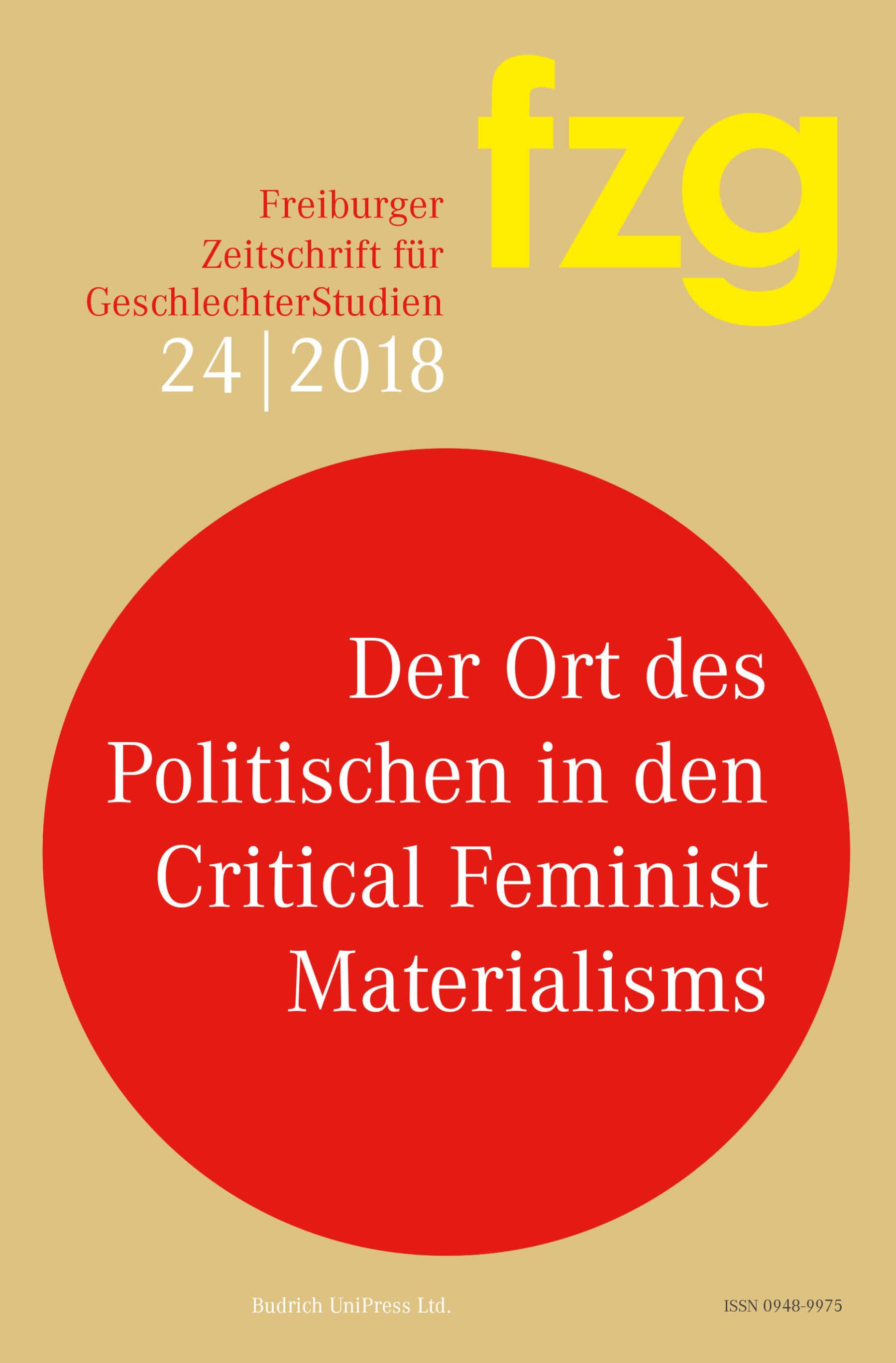

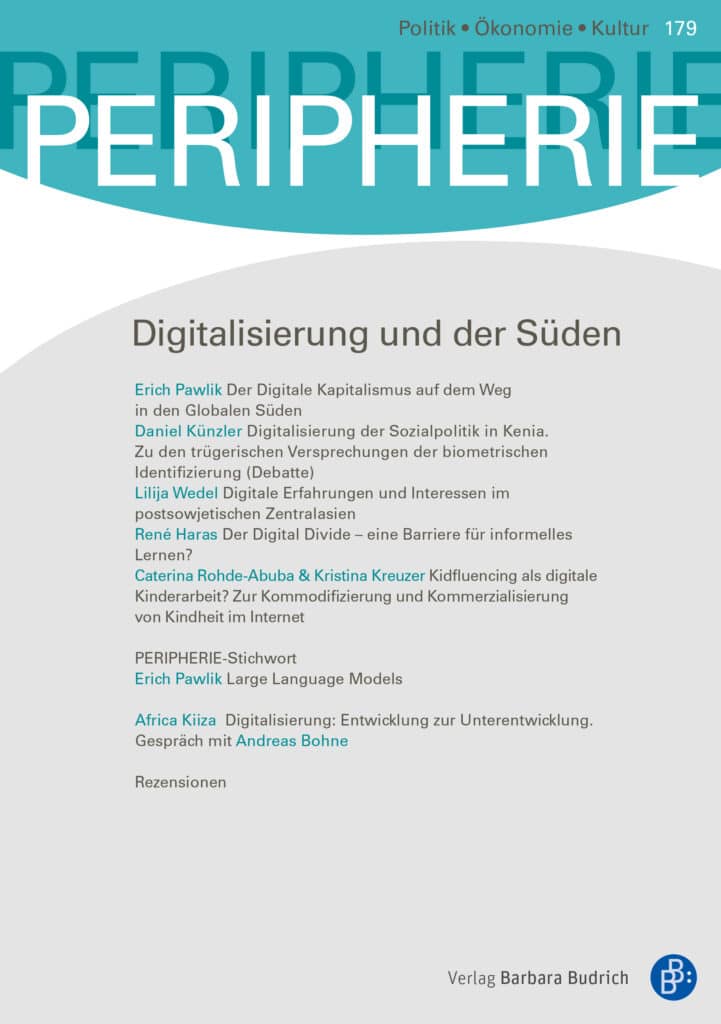
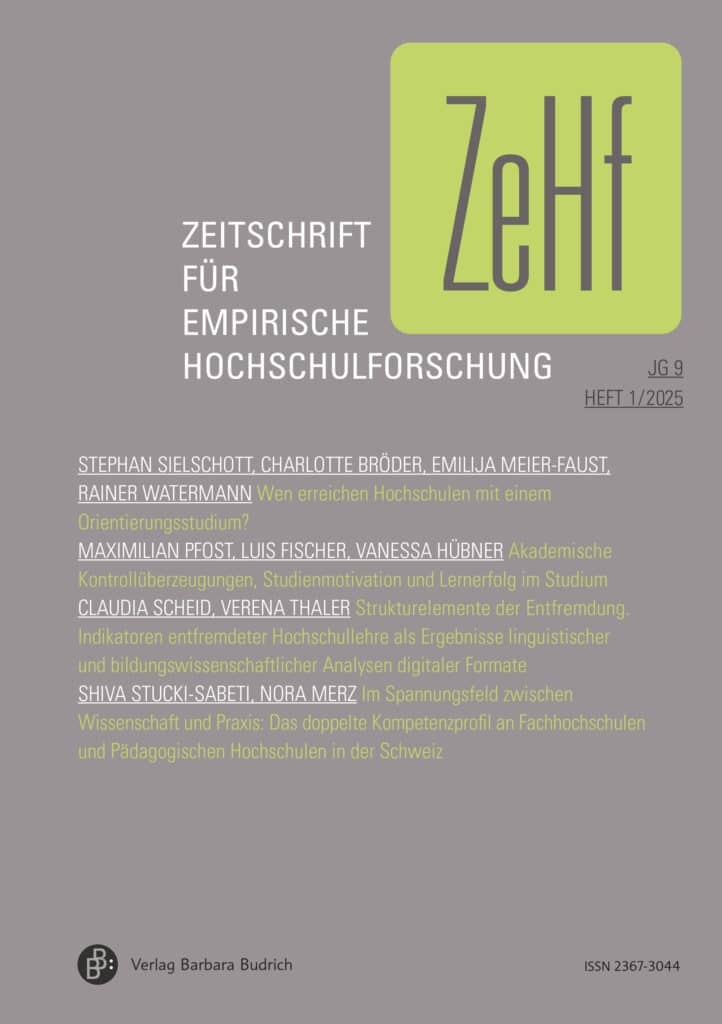
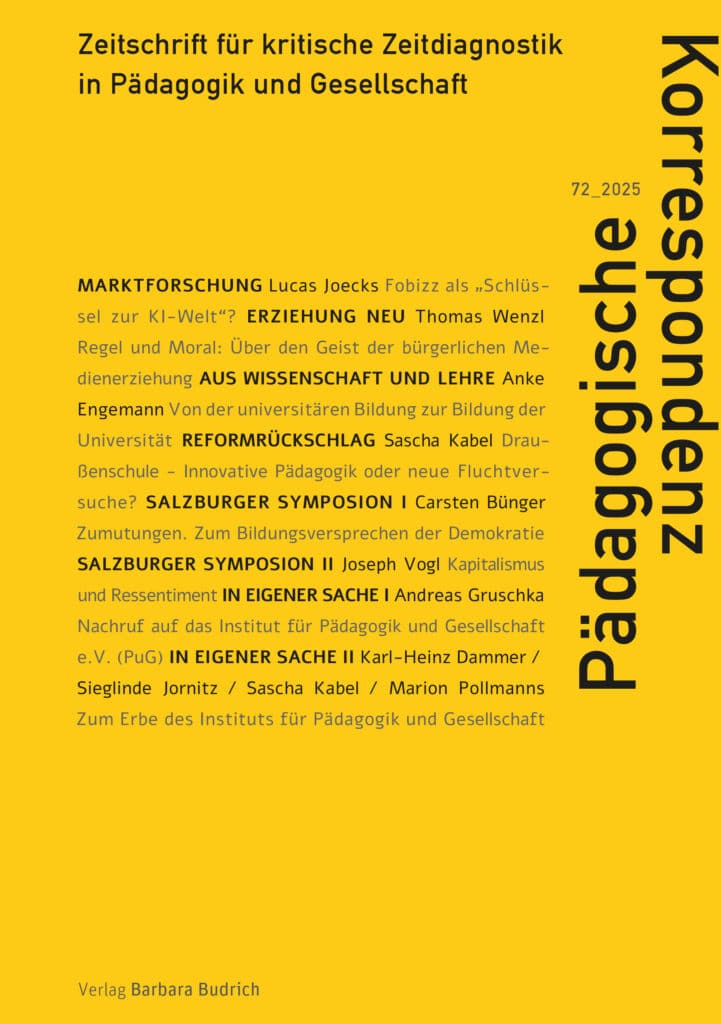
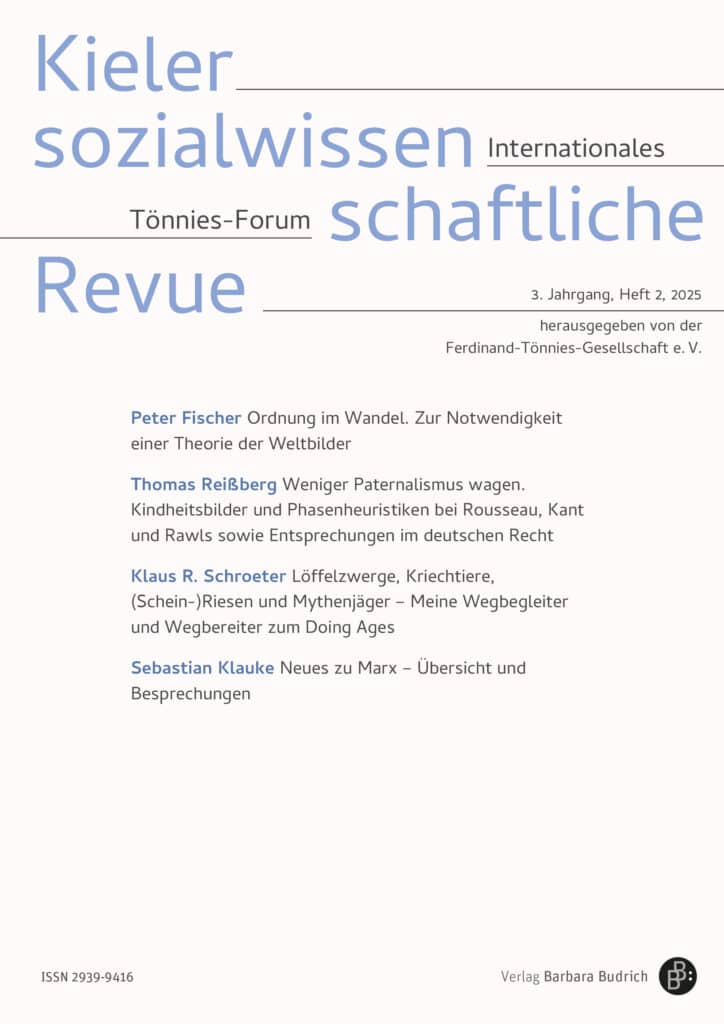
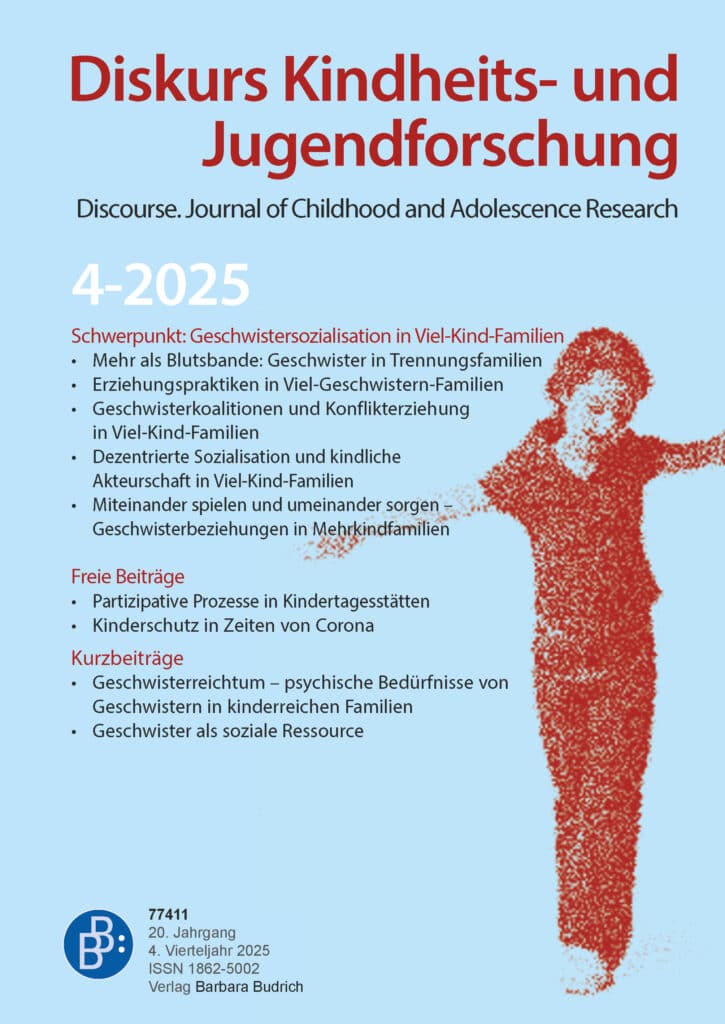

Bewertungen
Es gibt noch keine Bewertungen.